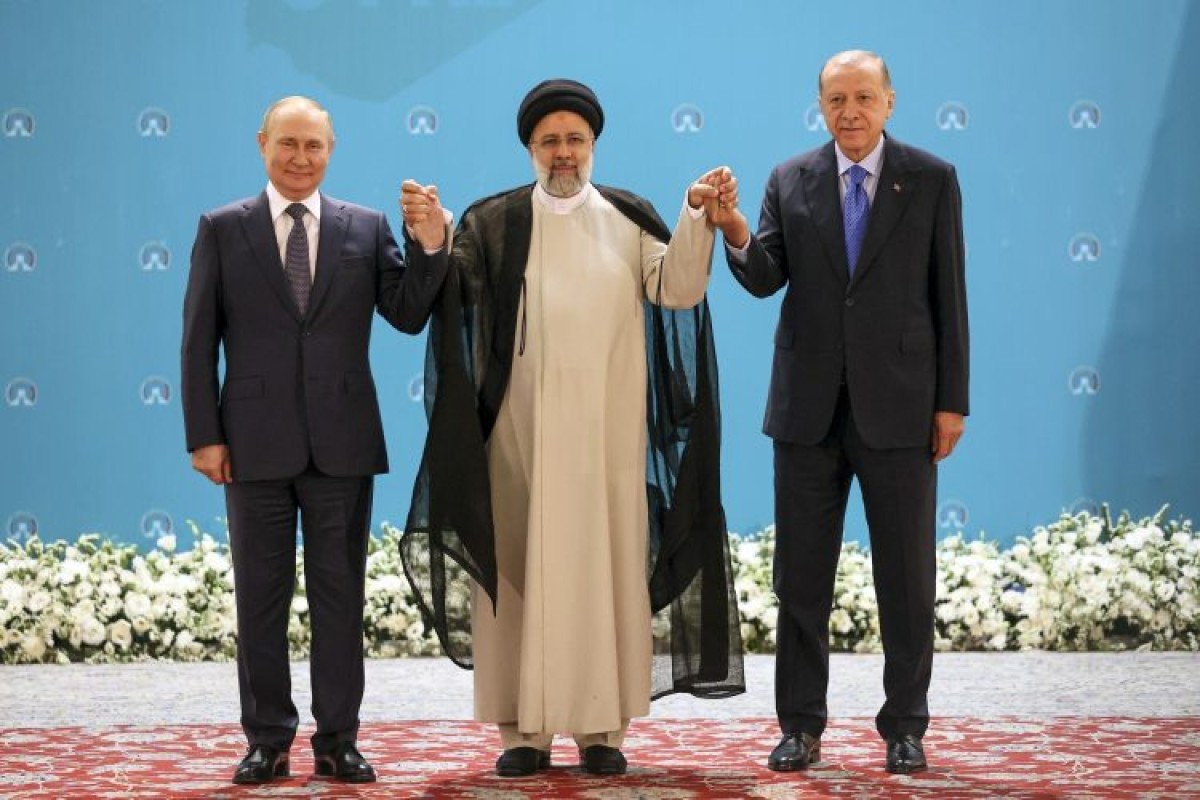 276
276
The landmark visits of the Presidents of Russia and Turkey to participate in the tripartite conference hosted by the Iranian President to discuss the future of the Syrian dilemma; illustrates the indispensable role that Iran plays in the dynamics of the Middle East and beyond.
Since he entered office, President Ebrahim Raisi has made it a top priority to strengthen Iran’s foreign policy, focusing on establishing closer relations with neighbouring countries and fostering relations between Tehran and other governments in Central Asia.
In this regard, Dr Raisi has made several regional tours to neighbouring countries, including Tajikistan, Turkmenistan, Russia, Qatar, and Oman, in the short time since he assumed the post of presidency. Meanwhile, as the trilateral meeting between the Iranian, Russian, and Turkish presidents took place in Tehran, Biden’s 4-day journey to the Middle East concluded. According to several political critics, Biden’s catastrophic tour was nothing more than a comedy of America’s presumably active but moribund hegemony in West Asia.
Furthermore. It was futile to develop measures to counter Iran’s extensive influence and curb the “Axis of Resistance growth.” Biden was also slammed for failing to achieve success in resolving the deterioration of the energy crisis in the West and the soaring price of crude oil in global energy markets. Moreover, building regional coalitions against Iran and the impasse in attempts to normalise efforts between Riyadh and Tel Aviv all but failed to reach any substantial outcomes.
By altering its diplomatic strategy, Iran, on the other hand, has enhanced its perseverance and resistance vis-à-vis the US illegitimate sanctions and gradually became successful in neutralising the economic anti-Iran measures. Today, political pundits believe that Iran and its foreign allies, most notably China and Russia, have expanded their cooperation in the face of US futile sanctions and global unilateralism to establish a new world order to replace the declining American liberalism.
On this basis, Dmitry Peskov, the press secretary for Russian President Vladimir Putin, said on Monday about Putin’s visit to Iran that Tehran-Moscow relations could potentially mitigate the detrimental impacts of western sanctions on both nations.
One of the primary goals of the current trip of Russian President Vladimir Putin and his Turkish counterpart Recep Tayyip Erdoğan to Tehran will be to develop collective solutions in cooperation with the Iranians to terminate the Syrian eleven-year-old civil war.
Although the US-backed armed rebellion in Syria has been quelled dramatically compared to its early years, experts believe that a joint decision by Tehran-Moscow-c would be highly conducive to establishing viable stability in war-ravaged Syria. Obviously, negotiations among Iran, Russia, and Turkey are not confined to the Syrian imbroglio, and the three countries have common fields of interest, including economic and energy concerns.
Thus, political scholars can easily assume that Tehran has now become the hub of diplomatic activities in Eurasia, as Agence France-Presse (AFP) defined the tripartite meeting between the presidents of Iran, Russia, and Turkey that took place on July 19, 2022, as a seismic political event in a report.
AFP also reported that this meeting is crucial as Turkey is poised to undertake a full-scale military strike in northern Syria, controlled by Kurdish guerrillas. For its part, Iran has previously cautioned against a military escalation in northern Syria, citing the ensuing instability and turmoil. The Tehran Conference also offered Erdoğan the chance during his two-day visit to have his first direct encounter with Putin since the onset of Moscow’s special military campaign in Ukraine.
The Turkish President has already requested a meeting with Vladimir Putin to help settle the current conflicts in Eastern Europe. Vladimir Sitnikov, an eminent Russian analyst, told AFP that Tuesday’s meeting in Tehran was not incidental; rather it was elaborately planned. Evidently, Turkey is seeking to exploit the Kremlin’s predicament of being deeply entangled in the Ukraine quagmire to initiate a special operation in Syria. However, the Turks seek to convince Moscow and Tehran first before starting their offensive.
In addition, the “Wall Street Journal” published an article last Sunday claiming that, by visiting Tehran, Putin is trying to convey to the world that his country’s position on the international stage has not weakened due to the protracted war in Ukraine.
Earlier, Mohammad Reza Pour Ebrahimi, the chairman of the economic-commission of the Iranian parliament, made reference to the visit of the Russian President to Iran and said: “Planning for the development of economic cooperation between Iran and Russia would be the focus of the talks between the Iranian and Russian presidents.” However, Pour Ebrahimi noted that the purpose of Biden’s visit to the area was to attract the immense oil riches of the Arabs with new justifications, such as the development of anti-Iran coalitions and unified aerial defence systems.
Mr Pour Ebrahimi alluded to Biden’s statement that Washington aspires to open a new chapter in America’s ties with Arab regimes, which it seems Washington will be unable to achieve. It is not without reason that King Abdullah II of Jordan has already expressed scepticism over any regional military alliance and indicated that if the nature of the alleged coalition and its principal objective is not made clear, the situation will become complicated.
In conclusion, when seen through the lens of realism, the latent message of Biden and Putin’s simultaneous Middle East tour is neither the formation of new geostrategic alliances nor a new Cold War between the United States and Russia. As a matter of fact, in reaction to harsh western sanctions against the Russian oil industry, Putin instead aims to boost ties with Tehran and push coordinated energy production arrangements with his long-standing Iranian allies.
Comment
Post a comment for this article